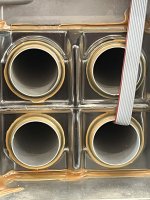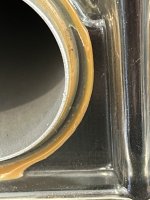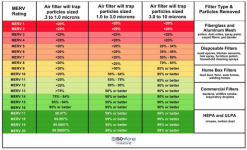Radix
Experienced Member
Hi All
I am looking at a couple of RL02 drives in otherwise reasonable condition and both have the following "condition" where the sealing gunk around the intercooler pipes seems to have shrunk or receded, or indeed split like in the close up photo below...
The joint seems to be sealed on both sides and the inside of the rear joint as seen from inside the drive looks very similar to the photo below on both drives.
Has anyone seem or had experience of dealing with this? - Is it a "leave well alone"? - Or is there a preferred way to deal with it?
Also - any good ideas for replacing the washable coarse air filter material? I have removed them at present as they have basically turned to dust.
Also any other tips for these drives for occasional demo and file copy use, rather than day-to-day 24x7?
Any ideas or other info much appreciated!
Robin


I am looking at a couple of RL02 drives in otherwise reasonable condition and both have the following "condition" where the sealing gunk around the intercooler pipes seems to have shrunk or receded, or indeed split like in the close up photo below...
The joint seems to be sealed on both sides and the inside of the rear joint as seen from inside the drive looks very similar to the photo below on both drives.
Has anyone seem or had experience of dealing with this? - Is it a "leave well alone"? - Or is there a preferred way to deal with it?
Also - any good ideas for replacing the washable coarse air filter material? I have removed them at present as they have basically turned to dust.
Also any other tips for these drives for occasional demo and file copy use, rather than day-to-day 24x7?
Any ideas or other info much appreciated!
Robin




